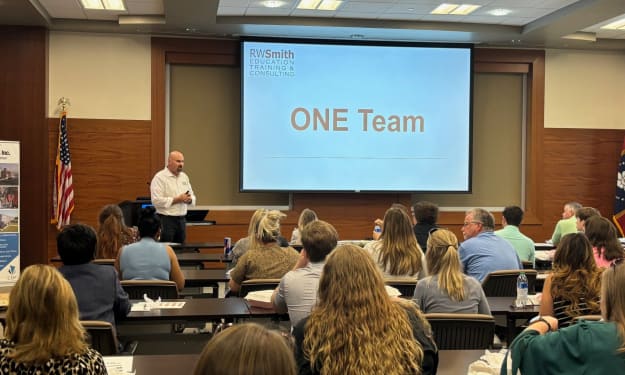Cyber Security Landscape In Larissa, Greece: Challenges, Strategies, And Future Directions
ieee paper on cyber security

Abstract:
Globally, businesses and government services are rapidly going digital, making Larissa, Greece, particularly vulnerable to cyber assaults. This has made cybersecurity a major worry. This study examines Larissa's cybersecurity situation as of right now, highlights the main obstacles that businesses and individuals must overcome, goes over current risk-reduction tactics, and suggests potential paths to strengthen cybersecurity resilience in the area.
Introduction:
The fast digital transformation of businesses and government services has made Larissa, Greece, and other places more vulnerable to cyber threats. As a result, cybersecurity has become a major worry globally. This study looks at Larissa's cybersecurity situation right now, highlights the main issues that both individuals and enterprises must deal with, talks about current risk-reduction tactics, and suggests future steps to strengthen the area's cybersecurity resilience.
Current State Of Cybersecurity In Larissa:
An outline of Larissa's current cybersecurity posture is given in this section. It looks at the frequency and kinds of cyberthreats that affect individuals, companies, governments, and academic institutions. Malware, phishing scams, ransomware, and vulnerabilities resulting from out-of-date software and insufficient security procedures are examples of common dangers.
What Are The Key Cybersecurity Challenges Specific To Larissa
Based on the provided search results, there are a few key cybersecurity challenges specific to Larissa, Greece:
Lack of qualified cybersecurity specialists: According to the search results, there is a dearth of cybersecurity professionals in Greece, which makes it challenging for Larissa-based firms to attract and retain talent.
Antiquated infrastructure: It can be costly and challenging to safeguard legacy systems and software in government organizations and vital infrastructure. For instance, the security measures on Larissa's transportation system gadgets are insufficient.
Technology flaws in farming: A lot of farmers in the Midwest, especially those in the Larissa region, use internet-connected devices to control irrigation systems and other machinery. Nevertheless, studies suggest that these gadgets might not be secure and present cybersecurity hazards. One major problem is getting farmers to know about these risks.
Growing sophistication of cyber threats: Cybercriminals are always refining their strategies, methods, and approaches to take advantage of holes in web technologies. Larissa constantly has the difficulty of staying ahead of these changing dangers.
Strategies For Enhancing Cybersecurity:
This section discusses current strategies and initiatives aimed at improving cybersecurity in Larissa:
Public-Private Partnerships: Information and resource sharing amongst enterprises, government organizations, and academic institutions.
Cybersecurity Awareness Campaigns: Instructional initiatives aimed at increasing public, corporate, and educational awareness.
Adoption of Cybersecurity Frameworks: To standardize cybersecurity procedures, implement frameworks like ISO/IEC 27001 or the NIST Cybersecurity Framework.
Incident Response Planning: Creating and testing incident response strategies to limit the effects of cyber incidents.
Future Directions:
Proposing recommendations and future directions for enhancing cybersecurity resilience in Larissa:
Investment in Cybersecurity Education: Integrating cybersecurity awareness and skills development into school curricula and professional training programs.
Enhanced Collaboration: Strengthening partnerships between academia, industry, and government to foster innovation and knowledge sharing.
Use of Emerging Technologies: Leveraging technologies such as artificial intelligence (AI) and blockchain for improved threat detection and data protection.
Continuous Monitoring and Adaptation: Establishing mechanisms for continuous monitoring of cybersecurity threats and evolving strategies accordingly.
Ieee paper on Cybersecurity In Larissa
The Greek National Cyber Security Authority (NCSA), which was founded in 2018, is the principal government entity in charge of coordinating cybersecurity activities across the country, including Larissa. The Hellenic Authority for Communication Security and Privacy (ADAE) and the Greek National Defence General Staff (HNDGS) are two government organizations with which the NCSA maintains strong ties.
In terms of national cybersecurity, the Hellenic Air Force (HAF), which is heavily based in Larissa, is essential. Retired HAF officer Anastasios Arampatzis has over 20 years of experience in cybersecurity and IT. He has held various key positions in communications and information systems security. His knowledge has been crucial in creating HAF's cybersecurity policies and procedures.
Cybersecurity Threats And Challenges
Larissa faces a range of cybersecurity threats, including:
Targeted attacks on critical infrastructure: As a major transportation hub and home to several industrial facilities, Larissa is a potential target for attacks on critical infrastructure such as the power grid, water treatment plants, and transportation systems.
Espionage and data theft: Government agencies and military installations in Larissa are at risk of espionage and data theft by nation-state actors and other sophisticated threat groups.
Ransomware and cybercrime: Businesses and individuals in Larissa are vulnerable to ransomware attacks and other forms of cybercrime, which have been on the rise in recent years.
Addressing these threats requires a multi-faceted approach involving government, industry, and academia. Key challenges include:
Lack of skilled cybersecurity professionals: There is a shortage of qualified cybersecurity professionals in Greece, which makes it difficult for organizations in Larissa to find and retain talent.
Limited resources: Many organizations, especially small and medium-sized businesses, lack the financial resources and expertise to implement robust cybersecurity measures.
Outdated infrastructure: Legacy systems and outdated software in critical infrastructure and government agencies can be difficult and expensive to secure.
Best Practices And Emerging Trends
To enhance cybersecurity in Greece, organizations should adopt best practices such as:
Implementing robust authentication and access controls: This encompasses the use of multi-factor authentication, the regular updating of passwords, and the implementation of role-based access controls.
Patching and updating systems on a regular basis: It's essential to keep systems and software updated with the newest security updates to stop known vulnerabilities from being exploited.
Regularly doing risk assessments and penetration tests: Businesses should evaluate their cybersecurity posture and look for any vulnerabilities by using risk assessments and penetration tests.
Educating staff members on cybersecurity awareness: Workers should be taught how to spot and report unusual behavior, steer clear of phishing scams, and adhere to data security and password management best practices.
Emerging trends in cybersecurity that are relevant to Larissa include:
Increased use of artificial intelligence and machine learning: AI and ML can be used to detect and respond to cyber threats in real-time, reducing the time between detection and mitigation.
Adoption of zero trust security models: Zero trust assumes that all users, devices, and applications are untrusted by default, requiring continuous verification and validation to access resources.
Emphasis on supply chain security: As organizations become increasingly reliant on third-party vendors and suppliers, there is a growing focus on ensuring the security of the entire supply chain.
What Are The Main Vulnerabilities In Larissa's Transportation Systems
Based on the provided search results, there are a few key vulnerabilities in Larissa, Greece's transportation systems:
Lack of cybersecurity in IoT devices: Many of the IoT devices used in Larissa's transportation infrastructure, such as cameras and sensors on traffic monitoring trailers, lack adequate security measures. This makes them vulnerable to cyber attacks that could disrupt transportation operations.
Reliance on GPS: Larissa's transportation systems, like many others, rely heavily on GPS signals for navigation and timing. A disruption or loss of GPS could significantly impact the safety and operations of civilian aviation, maritime, and surface transportation in the region.
Outdated infrastructure: Legacy systems and outdated software in Larissa's transportation infrastructure can be difficult and expensive to secure against cyber threats. Upgrading and modernizing this infrastructure is an ongoing challenge.
Lack of integrated transportation services: Currently, transportation services in Larissa are not fully integrated under public operation. The mayor's decision to consolidate all services may help improve the city's urban mobility and resilience
Conclusion
Larissa, Greece ieee paper on cyber security has made considerable strides in improving its cybersecurity posture in recent years, but there is still plenty to be done. Organizations in Larissa may strengthen their cyber resilience and guard against the rising risk of cyberattacks by implementing best practices, investing in qualified personnel, and keeping up with developing threats. To ensure a safe digital future for the city and its residents, government, business, and academia must continue to collaborate.
About the Creator
Enjoyed the story? Support the Creator.
Subscribe for free to receive all their stories in your feed.





Comments
There are no comments for this story
Be the first to respond and start the conversation.